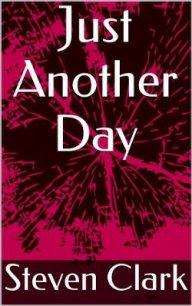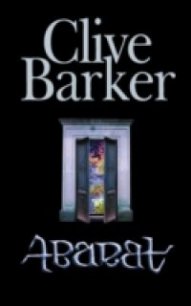Appaloosa - Паркер Роберт Б. (читать книги онлайн бесплатно серию книг txt) 📗
I leaned back a little and stretched out my legs and drank some more coffee. Cole looked at the mule and the horses.
“Must have been tiresome,” Cole said, “draggin’ them three animals on a lead.”
“Some,” I said. “Mule caught on pretty quick, and the horses got the idea in time.”
“Be easier now. I’ll lead her horse, you lead the mule.”
I nodded. We ate our meal and drank coffee with whiskey and didn’t say much. When it was dark, we let the fire die and settled to sleep between it and the rock, wrapped in strong-smelling saddle blankets.
“Got any thoughts where they might be headed?” I said to Cole.
“South,” Cole said.
33
It was just after dawn on our third day, and the trail had turned straight west. Now and then, Cole would see a hoofprint in among the ground cover. But mostly, we were able to follow them through horse droppings and the signs of campfires.
“I been thinking,” I said to Cole.
“Un-huh.”
He rode with his eyes on the ground, leading the saddle horse, with me trailing the mule.
“We’re all the law there was in Appaloosa,” I said.
“Yep.”
“And now we ain’t there.”
“Yep.”
“So,” I said. “Now there ain’t no law there.”
“Yep.”
“And that don’ bother you?” I said.
Cole looked up from the tracking for a moment.
“No,” he said. “It don’t.”
We rode on: Cole, head down, looking at the ground; me riding beside him, looking at the landscape. The saddle horse trailing placidly behind him, the mule behind me. Neither of us said anything. When we kicked up a jackrabbit, my hand went to my handgun, before I caught it. Cole never flinched. I’m not even sure he saw the rabbit. We kept on. We didn’t hurry, but we didn’t stop. Ahead, past the horizon above where our present direction would take us, there was a circular movement in the sky.
“Buzzards,” I said.
Cole looked up. His face showed nothing. We kept on. In maybe an hour, we came to where the buzzards were feeding. It was the carcass of a young buffalo, mostly bones now, and hooves. Most of what could be eaten had been. The buzzards flew up as we rode up, and landed again a few feet away. Cole ignored them. He got off his horse and went and squatted on his heels and looked at the remnants. The buzzards hopped restlessly just out of his reach. He paid no attention.
“Hide’s gone,” he said.
I sat my horse and waited, looking at the landscape. Cole didn’t need my help with the buffalo.
“Scapula’s broke,” he said.
I looked down and could see that it was. Cole rummaged a little among the bones and the blood-soaked grass where the buffalo had fallen.
“Shot,” he said.
Cole opened his hand and showed me two big lead slugs, misshapen from shattering the scapula.
“Bigger’n a forty-five,” Cole said.
“Fifty, maybe.”
“Maybe one of them old Sharps buffalo guns,” Cole said.
The vultures edged closer. There were still a few scraps on the bones.
“I didn’t see no sign of one,” I said, “with the Sheltons.”
“Nope. Wouldn’t take the hide, either.”
He was looking at the ground.
“See the horse tracks?” he said.
I rode nearer and wheeled around the dead animal, scattering the buzzards as I went.
“Not shod,” I said.
“And they bothered to skin it and take the hide,” Cole said.
“Indians.”
“Yep.”
I rode out a little way from the carcass, and in a slow wider circle, which infuriated the buzzards who had just lit there, after I’d scattered them in closer. On foot, Cole walked out toward where I was. I leaned forward in my saddle.
“Here’s the shod hoofprints,” I said. “And the unshod, mingled.”
Cole squatted, looking at the smudges in the dirt. Then he got down on his belly and put his face barely an inch away from the prints and looked, and slithered along like that, looking.
“Shod prints are older,” he said. “Sides have begun to crumble a little. Unshod prints are over them. Fresher.”
I looked at the landscape again. Nothing moved but the unhappy buzzards.
“Kiowa?” I said.
“No way to say. There’s some out here.”
“Could be hunters,” I said.
“Could be, but if they was just huntin’ they’d take bones, ligaments, horns, teeth, everything. Here they just took the hide and meat.”
“No squaws,” I said.
Cole nodded.
“When you was with the Army,” he said, “was the Kiowas hostile.”
“They were,” I said. “But you know Indians. Yesterday they were, today maybe they ain’t.
“Can you tell how far behind the Sheltons they are?”
“Ain’t that good,” Cole said.
“Can you tell how far ahead of us they are?”
“Carcass don’t smell yet,” Cole said.
“Ain’t much left that would smell,” I said.
“Blood would,” Cole said. “Soaked in the ground.”
He stood and swung back up onto his horse.
“Best keep moving,” he said.
He kept looking at the ground as we rode on. I kept looking around us.
34
We camped without a fire that night, in the bend of a small river, so that the water was on three sides. And we tethered the animals close.
“No coffee,” I said. “But I still got whiskey.”
“It’ll do,” Cole said.
We ate some beef jerky and cold fry biscuits and drank some whiskey.
“Indian sign turned off about five miles back,” Cole said. “Sheltons are still going straight.”
“So they give up on the Sheltons.”
“Or they had to stop and jerk that buffalo before it started to rot,” Cole said. “Or they had something to do wherever they went and they’ll come back. Them Kiowas know there’s something ahead of ’em, and how many. It’s just if they want to chase them down.”
“Sheltons got three good gun hands, plus Allie. You know how many Indians?”
“Can’t say. They’re riding too close, and we don’t have time for me to get down and look close enough for long enough. There’s more than two.”
Cole passed me the whiskey bottle and I drank some.
“You know if Allie can shoot?”
“Anybody can shoot,” Cole said. “And hit something if it’s close enough.”
“Think they’d give her a gun?”
“I don’t think nothing,” Cole said. “Can you stay awake until midnight?”
“Yes.”
“And I can stay awake from then to dawn,” Cole said. “Wake me up.”
He rolled up in his saddle blanket and, as far as I could tell, went to sleep right away. I put the whiskey away and wrapped my saddle blanket around me, sat in the dark under the high stars with the shotgun across my lap, and listened to the sound of the river, and the smell of the water and the grass mixed with the smell of horse blanket, and the night went its way. Halfway to dawn, I woke Cole. He came awake as instantly as he’d fallen asleep.
In the morning, the mule woke me up, nudging at me for its morning feed. We fed the stock and washed in the river and had a cold breakfast and moved on.
“Sheltons got to be heading someplace,” I said. “They probably got some money before they started, but nobody’s fool enough to pay them all. They got to deliver Bragg to collect the rest.”
“Be my suppose,” Cole said.
“So they’re headin’ someplace, and we’re behind them,” I said. “Good to know we ain’t just wandering.”
Cole nodded, his eyes on the ground.
“ ’Course it’d be even better to know where the someplace was.”
“Would,” Cole said.
It was late morning when Cole halted and bent out of his saddle, looking at the ground.
“Indians are back,” he said.
I moved up beside him and saw them, too. They had trailed in from the west and cut the Sheltons’ tracks.


